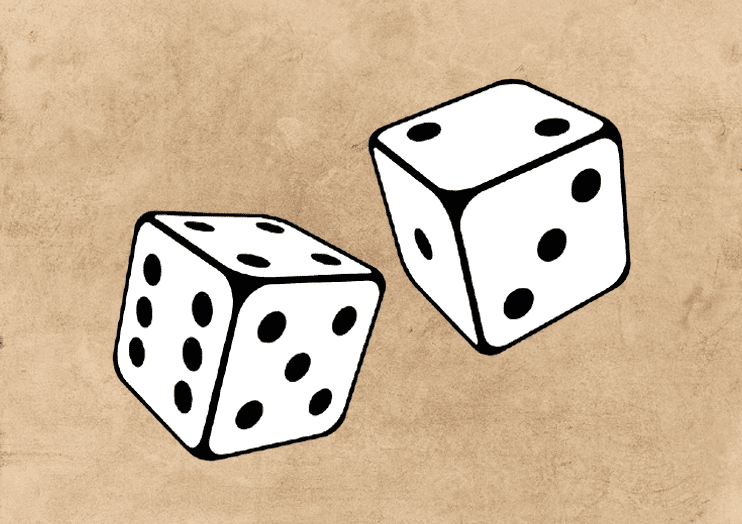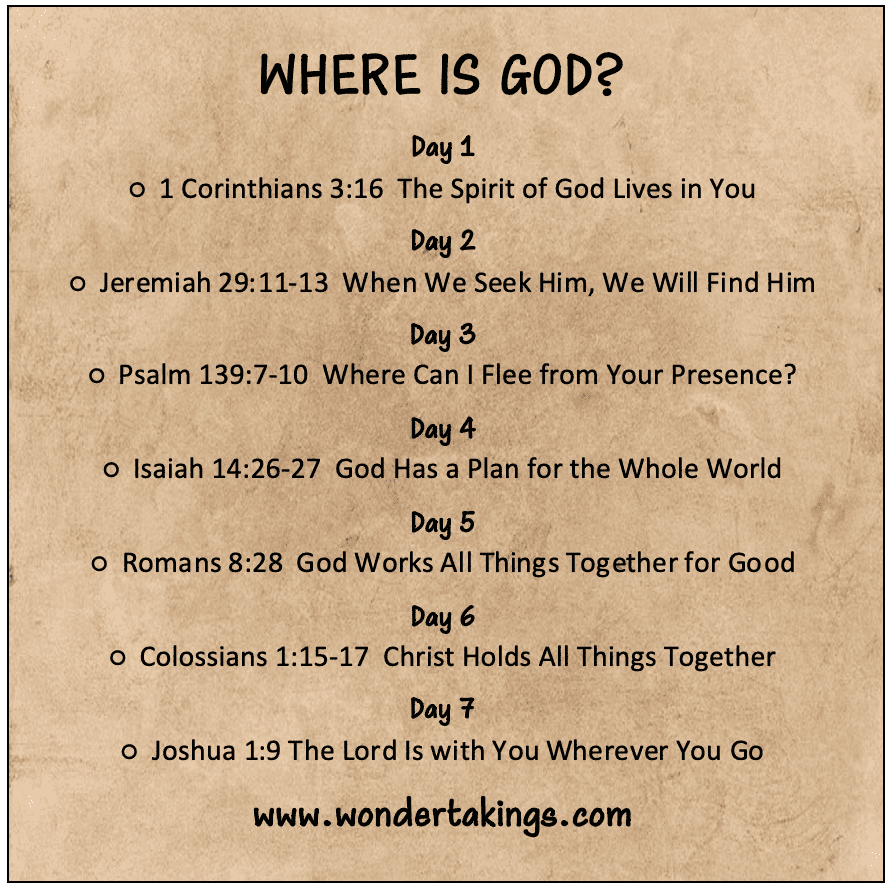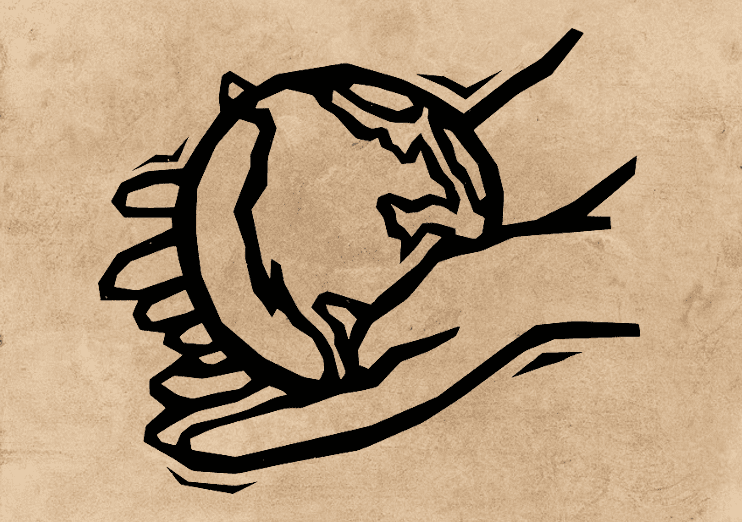Where Is God?
“I lift up my eyes to the mountains — where does my help come from?”
Psalm 121:1 NIV

Do you ever have days that cause you to wonder where God is? There are times we may struggle to hear His voice or to feel His presence. Does this mean He’s far away? Does it mean He’s stopped working in our lives? Let’s see what we can learn from the book of Esther, a book in which God’s name is never even mentioned . . .
“And who knows but that you have come to your royal position for such a time as this?”
Esther 4:14 NIV
We can see God’s hand all over the events in the book of Esther. Esther “just happened” to be chosen to be queen from among all the young women taken before King Xerxes. Mordecai “just happened” to overhear a plot against the king’s life. Xerxes “just happened” to have trouble sleeping the night before Haman planned to kill Mordecai, and he “just happened” to have the chronicles of his reign read to him, which reminded him that Mordecai had saved him from assassination. That’s a lot of coincidences! And how about the way Haman’s evil egotism was turned against him? Haman was impaled on the very pole he had put up to kill Mordecai, while Mordecai received the honor and power that Haman had desired.
“The book of Esther is a wondrous sequence of coincidences. And the purest example of Providence, in that the name of God is never mentioned.”
Christian Believer
The book of Esther shows us that God is always at work. It displays His providence in the lives of His people. Providence is God’s provident care for His creation, that is, care that is “characterized by or proceeding from foresight” (dictionary.com). In other words, it’s the way God carefully provides for us, based on His knowledge of the future, to accomplish His purposes in the world.
“By providence we mean that God has specific purposes in our world — and some would say, in our individual human lives — and that God works in the events of our world to bring those purposes to pass. Occasionally the providence of God has what many would see as a miraculous quality. But more often, we think of providence as divine intervention that is recognized only after it is past, and often not recognized at all except by those who read life with a certain kind of faith.”
Christian Believer

“We may throw the dice, but the Lord determines how they fall.”
Proverbs 16:33 NLT
In calling for the Jews’ destruction, Haman cast lots, like dice, to determine the date. But instead of becoming a dark day in Israel’s history, it became a day of celebration. God worked behind the scenes to place Esther and Mordecai at just the right place and time to save their people from destruction. And through their courage in recognizing and answering God’s call, they helped turn a day of dread into a day of celebration. The festival of Purim, also called the Feast of Lots, is still observed today. It’s basically a big party that celebrates the way God worked in the background to save His people.
“God — from whom nothing is hidden . . . and whose power is surpassingly great . . . — wisely oversees and sovereignly controls all creation. In doing so He attends not only to apparently momentous events and people but also to those that seem both mundane and trivial. Thus, while He holds the lives of both kings and nations in His hand . . . , God also concerns Himself with the welfare of the lowly and meek . . . . Indeed, so all encompassing is God’s attention to events within creation that nothing — not even the casting of lots — happens by chance . . . .”
Holman Illustrated Bible Dictionary

“So the last will be first, and the first will be last.”
Matthew 20:16 NIV
Esther’s story is one of amazing coincidences and dramatic reversals, making it clear that God was not only present, He was actively working to bring about His purposes for His people. But He chose to do so through the actions and choices of the characters in the story. He used the would-be plot of assassins, the sleepless night of Xerxes, and even Haman’s own arrogance to flip the script and put Mordecai in power in Haman’s place.
And He used the defiance of Vashti to bring Esther to the palace, putting her in the perfect position to turn what was supposed to be a day of destruction into a day of salvation. But Esther had to choose. Would she be willing to risk probable death in seeking an audience with the king without being summoned and then revealing her true nationality? Or would she play it safe and choose to remain silent? Esther didn’t have to think about it for long before she made her choice:
“I will go to the king, even though it is against the law. And if I perish, I perish.”
Esther 4:16 NIV
To borrow a phrase from pastor and author Steven Furtick, this is a perfect example of “audacious faith” — trusting God to put you exactly where He wants you and then being willing to step out when He says to move! And for Esther, as well as for all of God’s people, it paid off:
“On the day when the Jews’ enemies had hoped to overpower them, just the opposite happened. The Jews overpowered those who hated them.”
Esther 9:1 CSB
Esther and Mordecai were not perfect people. But they were sensitive to God’s leading, and they chose to trust Him when the time came to step out in faith. Because of this, God was able to accomplish something amazing through them! We can learn from their example.
“From a Lower Story point of view, everything in Esther’s story appears to be coincidence, luck, misfortune, or random events. Mordecai sees the Upper Story when he asks Queen Esther, ‘Who knows but that you have come to your royal position for such a time as this?’ Many of the things happening to us in our Lower Story, whether lucky breaks or heartbreaks, are for a good Upper Story purpose. Watch for that purpose, and like Esther, be willing to take action with courage.”
Randy Frazee, The Heart of the Story
So, where is God in the story of Esther? Where is God in the story of our lives? Everywhere. We can trust God’s providence even when we can’t see it working, because He always has a plan. And He will make sure it comes to pass. This week’s Scripture passages remind us of this.
As Mordecai pointed out to Esther, we can choose not to participate in God’s plan, but then its fruition will come about in another way, and we will miss out on being a part of it. So, let’s choose to trust God. Let’s be sensitive to His leading, and let’s be ready to step out in audacious faith when He calls us to accomplish the impossible!
“Jesus replied, ‘My Father is always working, and so am I.”
John 5:17 NLT

“My help comes from the Lord, the Maker of heaven and earth.”
Psalm 121:2 NIV

References:
- “Book of Esther Summary: A Complete Animated Overview.” YouTube, uploaded by BibleProject, 24 June 2016, https://youtu.be/JydNSlufRIs?si=Y-OqWPKyJIKi2byx.
- Frazee, Randy. The Heart of the Story: Discover Your Life Within the Grand Epic of God’s Story. Zondervan, 2017.
- Holman Illustrated Bible Dictionary. Holman Reference, 2003.
- Kalas, J. Ellsworth. Christian Believer: Knowing God with Heart and Mind — Study Manual. Abingdon Press, 1999.
- The Story: Read the Bible as One Seamless Story from Beginning to End. Rev. ed., Zondervan, 2008.
Images:
- Esther featured image taken from “Book of Esther Summary: A Complete Animated Overview.” YouTube, uploaded by BibleProject, 24 June 2016, https://youtu.be/JydNSlufRIs?si=Y-OqWPKyJIKi2byx
- Parchment Background image by ChrisFiedler from Pixabay
- Question Mark image by VintageSnipsAndClips from Pixabay
- Dice drawing by Mohamed Hassan from Pixabay
- Arrow image by Clker-Free-Vector-Images from Pixabay
- Hands Holding the World image by Clker-Free-Vector-Images from Pixabay